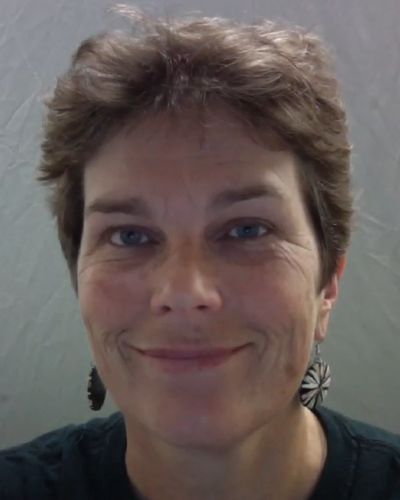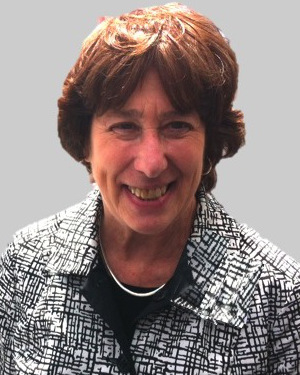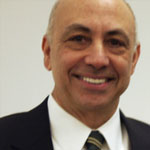Workshops
This page provides descriptions of Sentiment Analysis Symposium workshops. Register for either day or both, and mix-and-match Presentation and Workshop track participation. For the full agenda, listing content of both tracks, visit the Agenda page.
Wednesday, July 15
Part1: 9:25 am to 10:40 am; Part 2: 11:00 am to 12:30 pm
Instructor: Bing Liu, Univ of Illinois at Chicago
 Bing Liu is a professor in the Department of Computer Science of the University of Illinois at Chicago. Liu is a leading authority on natural language processing for attitudinal and affective data. His Sentiment Analysis: Mining Opinions, Sentiments, and Emotions has just been published by Cambridge University Press.
Bing Liu is a professor in the Department of Computer Science of the University of Illinois at Chicago. Liu is a leading authority on natural language processing for attitudinal and affective data. His Sentiment Analysis: Mining Opinions, Sentiments, and Emotions has just been published by Cambridge University Press.
Workshop Description
Sentiment analysis or opinion mining is the computational study of people's opinions, appraisals, attitudes and emotions toward entities, individuals, topics and their attributes expressed in text. Opinions are important because they are key influencers of our behaviors.
In the past decade, extensive research has been done and a great deal of progress has been made on sentiment analysis. In this tutorial, I will first define the sentiment analysis problem, describe its main tasks, and then present the current state-of-the-art techniques. After that, I will put things together to describe how to build a practical sentiment analysis system. Finally, I will briefly discuss some existing methods for detecting opinion spam or fake reviews on the Web. In the tutorial, various examples and demos will be given to help participants better understand how the technology works and how it can be deployed to help businesses. All parts of the tutorial will have a mix of research and industry flavor, addressing seminal research concepts and looking at the technology from an industry angle.
Workshop Outline
1 Introduction 2 The Problem of Sentiment Analysis 2.1 Definition of Sentiment Analysis 2.2 Affect, Emotion, and Mood 3 Document Sentiment Classification 3.1 Supervised Sentiment Classification 3.2 Unsupervised Sentiment Classification 3.3 Emotion Classification 4 Sentence Subjectivity and Sentiment Classification 4.1 Sentence Subjectivity Classification 4.2 Sentence Sentiment Classification 4.3 Sentence Emotion Classification 5 Aspect-Based Sentiment Classification 5.1 Supervised Learning 5.2 Lexicon-based Classification 5.3 Rules of Sentiment Composition 6 Aspect and Entity Extraction 6.1 Frequency-Based Extraction 6.2 Extraction Using Syntactic Relations 6.3 Extraction Using Supervised Learning 6. Topic Models and Lifelong Learning 7 Sentiment Lexicon Generation 7.1 Dictionary-Based Approach 7.2 Corpus-Based Approach 7.3 Dealing with Context Dependent Sentiment Words 8 Analysis of Comparative Opinions 8.1 Problem Definition 8.2 Sentiment Analysis of Comparative Sentences 9 Analysis of Debates and Comments 10 Intention mining 11 Fake or deceptive opinion detection 12 Summary
Previous tutorials have been taught by Jason Baldrigde of the University of Texas (March 2014); Ronen Feldman of the Hebrew University (May 2013); Diana Maynard, research fellow at the Univ. of Sheffield, UK (November, 2012) Bing Liu of the University of Illinois at Chicago (May 2012; Christopher Potts of Stanford University (November 2011); and staff from eBay Research Labs (April 2011).
1:30 pm to 2:10 pm

Instructor: Gwen Littlewort, Senior Data Scientist, Emotient
Dr. Gwen Littlewort performs exploratory data analysis at Emotient. Previously Gwen was a project scientist at University of California, San Diego (UCSD) for 10 years, in the Machine Perception Laboratory, where she pioneered learning approaches to automated facial action coding for the core engine of the CERT toolbox, which was widely distributed in the academic community. Her academic research interests from 1984 to the present are computational neuroscience and software tools for education and healthcare.
Education: B.Sc. Electrical Engineering, University of Cape Town; D.Phil. Mathematical Physics, Oxford University; Postdoc, Cognitive Science, UCSD. She has taught mathematics and physics at a number of colleges and universities around the world.
Workshop Description
Emotient will present live, interactive demonstrations of its facial expression recognition system at work -- including multi-user demonstrations of expressions of the seven basic emotions and correlating online survey analytics. The presentation will cover new and exciting applications of Emotient's micro-expression analysis technology across a variety of industries including marketing, crowd analysis and healthcare, as well as address the evolution of their technology development, and exciting new capabilities to look for in the near future.
2:10 pm to 3 pm

Instructor: Michael Czerny, L-3 Data Tactics
Michael Czerny is a data scientist at L-3 Data Tactics. He is interested in complex problems and understanding how the world works. His background is in cosmology and particle physics.
Workshop Description
Recently, Google developed a method called Word2Vec that captures the context of words, while at the same time reducing the size of the data. Word2Vec is actually two different methods: Continuous Bag of Words (CBOW) and Skip-gram. Both methods use artificial neural networks as their classification algorithm. It's clear that Word2Vec is able to learn non-trivial relationships between words. This is what makes them powerful for many NLP tasks, and in our case sentiment analysis. This workshop covers application of Word2Vec and Doc2Vec using standard tools like Python and gensim. With a very simple algorithm we can gain rich word and paragraph vectors that can be used in all kinds of NLP applications. (For further background, see Modern Methods for Sentiment Analysis.)
3:30 pm to 4:30 pm
Instructor: Sue Feldman, Synthexis, and Hadley Reynolds, Next Era Research
 Sue Feldman is founder and CEO of Synthexis, a consulting firm that provides business advisory services to vendors and buyers of cognitive computing, search and text analytics technologies. Since 1990, she has been instrumental in shaping market research and understanding in search and text analytics. Before founding Synthexis, Sue was Vice President for Search and Discovery Technologies at IDC (International Data Corporation), where she directed research on the technologies and markets for search, text analytics, categorization, translation, mobile and rich media search. Prior to coming to IDC, Ms. Feldman was founder and president of Datasearch, an independent technology advisory firm, where she consulted on usability and on information retrieval technologies.
Sue Feldman is founder and CEO of Synthexis, a consulting firm that provides business advisory services to vendors and buyers of cognitive computing, search and text analytics technologies. Since 1990, she has been instrumental in shaping market research and understanding in search and text analytics. Before founding Synthexis, Sue was Vice President for Search and Discovery Technologies at IDC (International Data Corporation), where she directed research on the technologies and markets for search, text analytics, categorization, translation, mobile and rich media search. Prior to coming to IDC, Ms. Feldman was founder and president of Datasearch, an independent technology advisory firm, where she consulted on usability and on information retrieval technologies.
 Hadley Reynolds is proprietor of NextEra Research, which offers a lens on emergent intelligent systems deployed to augment human decision making. NextEra provides research and advisory services which analyze alternatives in software that can capture operational advantages such as proactive discovery, analytical dissection of big data, full field risk assessment, and decision/action recommendations. Prior to NextEra Research, he most recently was associated with International Data Corporation as a senior analyst developing the practice on Search and Digital Marketplace technologies. Prior to IDC, he founded and acted as VP and Director of the Centre for Search Innovation at FAST/Microsoft. For over a decade, he headed the research practice at Delphi Group, with a focus on knowledge management, search, content & collaboration management, and business process automation.
Hadley Reynolds is proprietor of NextEra Research, which offers a lens on emergent intelligent systems deployed to augment human decision making. NextEra provides research and advisory services which analyze alternatives in software that can capture operational advantages such as proactive discovery, analytical dissection of big data, full field risk assessment, and decision/action recommendations. Prior to NextEra Research, he most recently was associated with International Data Corporation as a senior analyst developing the practice on Search and Digital Marketplace technologies. Prior to IDC, he founded and acted as VP and Director of the Centre for Search Innovation at FAST/Microsoft. For over a decade, he headed the research practice at Delphi Group, with a focus on knowledge management, search, content & collaboration management, and business process automation.
Workshop Description
Cognitive computing can be considered a superset of analytics, search, business intelligence, advertising, AI and machine learning.All of these technologies are currently coalescing around the concept of cognitive computing, with a healthy dose of user experience, recommendation engines and contextual personalization thrown in.This presentation by Sue Feldman and Hadley Reynolds, co-founders of the Cognitive Computing Consortium, will:
- Define cognitive computing -- what it is and what it isn't
- Discuss the rationale for its use
- Explore what makes it different from today's traditional information systems
- Describe the role that sentiment analysis will play in turning a traditional system into a contextual cognitive system
4:30 pm to 5:30 pm
Instructor: Robert Dale, Chief Technology Officer, Arria
 Robert Dale is internationally recognised for his research in natural language generation (NLG). Since receiving his PhD from the University of Edinburgh in 1989, he has taught at universities in the UK and Australia. He has published over 160 papers and authored or edited seven books on a wide range of topics in natural language processing. His best known publication is Building Natural Language Generation Systems, a book he wrote with Professor Ehud Reiter, which is widely used as a textbook for NLG. From 2003 to 2012, he served as editor-in-chief of Computational Linguistics, the preeminent international journal on all aspects of natural language processing. In 2012, Dale stepped down as Professor in Computational Linguistics at Sydney's Macquarie University to join Arria, where he is now responsible for ensuring that the company's technology offerings remain at the cutting edge.
Robert Dale is internationally recognised for his research in natural language generation (NLG). Since receiving his PhD from the University of Edinburgh in 1989, he has taught at universities in the UK and Australia. He has published over 160 papers and authored or edited seven books on a wide range of topics in natural language processing. His best known publication is Building Natural Language Generation Systems, a book he wrote with Professor Ehud Reiter, which is widely used as a textbook for NLG. From 2003 to 2012, he served as editor-in-chief of Computational Linguistics, the preeminent international journal on all aspects of natural language processing. In 2012, Dale stepped down as Professor in Computational Linguistics at Sydney's Macquarie University to join Arria, where he is now responsible for ensuring that the company's technology offerings remain at the cutting edge.
Workshop Description
NLG systems take data - often large quantities of data - and generate texts that explain or describe that data. NLG makes it possible to create content at a scale and speed that is unimaginable using human authoring. NLG has been taken up by media outlets and industry in fields that include finance, sports, meteorology, and healthcare, where data-driven, high-volume reporting needs point to automation of content generation. The technology makes it possible to automatically tailor the provision of textual content very specifically to its intended audience, and to emulate any required tone of voice.
In this workshop, we'll look at some examples of NLG systems in use today and peel back the covers to provide an in-depth understanding how the technology works. We'll also discuss how the technology will play a role in the next wave of dynamic content creation, where the specific content and wording of targeted advertising is tailored to the recipient.
Thursday, July 16
10:30 am to 11:30 am
Social Media Metrics and Measurement
Instructor: Stephen Rappaport, @SteveRappaport
 Steve Rappaport is senior consultant at Stephen D. Rappaport Consulting LLC, a brand growth consultancy concentrating in marketing, media, and advertising strategy; consumer insight through cognitive economics, social listening, and many forms of market research; and knowledge management to support strategy. Steve was formerly Knowledge Solutions Director / Head of Knowledge Center at the Advertising Research Foundation and has long been active on consumer research and knowledge management. He is author of the Digital Metrics Field Guide, published in early 2015.
Steve Rappaport is senior consultant at Stephen D. Rappaport Consulting LLC, a brand growth consultancy concentrating in marketing, media, and advertising strategy; consumer insight through cognitive economics, social listening, and many forms of market research; and knowledge management to support strategy. Steve was formerly Knowledge Solutions Director / Head of Knowledge Center at the Advertising Research Foundation and has long been active on consumer research and knowledge management. He is author of the Digital Metrics Field Guide, published in early 2015.
Workshop Description
Welcome to the world of "humetrics." Workshop instructor Stephen Rappaport coined that term to describe the big shift from our industry's age-old preoccupation with media measurement to understanding people by gauging and interpreting their digital lives. Rappaport's "Digital Metrics Field Guide" (from which this workshop description is derived) helps us recognize data points not merely as impersonal dots on a trend line, percentage changes, or ratios. They are, in fact, personal -- capturing what people say, do and feel in real time. Once we view digital metrics as reflecting individuals, they become characters we employ to craft compelling narratives about people and brands that we later share with our colleagues in and outside of our areas. Those narratives fortify brands with a common understanding that increases the potential to act in the best interests of customers and prospects, and to create and execute successful marketing strategies.
The Social Media Metrics and Measurement workshop will have four sections:
- introduction and overview of social media measurement
- case studies illustrating the use of social media measures (with audience participation and comments)
- hands-on workshop. We will present three typical business scenarios and have the attendees work through them, including developing an analytic strategy, measurement plan, etc.
- wrap-up and final Q&A
11:30 am to 12:30 pm
Motivational Insights Drive Marketing Strategies
Instructor: David Forbes, Chief Innovation Officer, Forbes Consulting Group, a division of Copernicus, @ForbesResearch
 David Forbes holds a Ph.D. in clinical and cognitive psychology from Clark University, and was a member of the faculties of Harvard Medical School Department of Psychiatry and the Harvard Laboratory of Human Development before beginning his career as a business consultant. Dr. Forbes founded Forbes Consulting over 20 years ago as a strategic market research consultancy dedicated to creating business advantage through deep psychological consumer insights. Since that time, he has built Forbes into a major resource for scores of major corporations in the CPG, Financial Services, and Pharmaceuticals industries, domestically and internationally.
David Forbes holds a Ph.D. in clinical and cognitive psychology from Clark University, and was a member of the faculties of Harvard Medical School Department of Psychiatry and the Harvard Laboratory of Human Development before beginning his career as a business consultant. Dr. Forbes founded Forbes Consulting over 20 years ago as a strategic market research consultancy dedicated to creating business advantage through deep psychological consumer insights. Since that time, he has built Forbes into a major resource for scores of major corporations in the CPG, Financial Services, and Pharmaceuticals industries, domestically and internationally.
Workshop Description
David Forbes' SAS15 workshop is drawn from his book, The Science of Why, and delivers an insight trifecta for all who want to know how to market to consumers deep-seated emotions:
1:30 pm to 3:15 pm
Financial Markets, segment 1
 Moderator: Bartt Kellermann, Founder and CEO of Global Capital Acquisition (GCA) and Battle of the Quants.
Moderator: Bartt Kellermann, Founder and CEO of Global Capital Acquisition (GCA) and Battle of the Quants.
- Financial News Analysis for Equity and Credit
- Improving Sentiment for Investing through Stock Price Extraction
- Sentiment & The Markets: Extracting Intent & Influence for Predictive Trading Strategies
- Combine Domain Expertise and Sentiment Analysis
Presentation
QUICK and FTRI created Machine Readable news for NIKKEI news. We analyzed the relation between the news and Equity market. We confirmed the news had intrinsic value for the market. The news is available on QUICK News Analysis. We analyz news on TSE Timely Disclosure network (TDnet) as well. The result that some qualitative news on TDnet had effective information for predicting credit default was found. In conclusion, financial news has additional information for both markets.
Presentation
We have developed a new form of sentiment for investment analysis based on extracting price levels within text (like tweets or other communication) and measuring
intent. This method is significantly different and in many ways superior to emotion based sentiment scores currently used in finance and we believe is the next generation of
sentiment for investing.
By extracting price mentions, dates, actions taken, type of financial analysis used, and others, we create a matrix of directional sentiment per stock. Using our method, consensus stock price levels are determined and users can see how expectations change over
time in relation to the actual stock price.
Presentation
Sentiment & The Markets: Extracting Intent & Influence for Predictive Trading Strategies is designed to provide listeners with a framework for understanding 1) relationships of intent to action for individuals 2) relationships of intent to action for groups 3) how influence directs and/or re-directs individuals behavior 4) manipulation in the markets and resulting effects 5) how trade signals are generated 6) how market signals are generated 7) how retail investors, ria's, hedge funds, and quant groups are utilizing these signals for their hold times of 24 hrs to 3 months.
Presentation
Sentiment analysis has too often relied on traditional data science techniques to attempt to glean nuanced sentiment information from complex documents. Traditional methods allow us to get an overview of the forest of data that exists, but deep domain expertise is crucial to getting a more nuanced view of the trees. This talk examines how to utilize deep domain expertise to construct more refined sentiment analysis on complex documents. Examples will be drawn from analysis of central bank communications that has resulted in comprehensive, unbiased, quantitative sentiment data.
3:45 pm to 5:30 pm
Financial Markets, segment 2
Moderator: Bartt Kellermann, Founder and CEO of Global Capital Acquisition (GCA) and Battle of the Quants.
- Sentiment Analysis in Finance: From Bag of Words to Bag of Insights
- Financial Markets and Trading Strategies
- Interpreting Group Investment Behavior from Twitter
- The Evolution of Social Analysis for Capital Markets: Moving Beyond Financial Chatter
Presentation
Presentation
Financial markets are driven by fundamentals and sentiment. While investment technologies that leverage fundamental analysis have matured, few exist that effectively incorporate sentiment analysis. At the same time, the availability of financial sentiment data in structured and unstructured form has grown exponentially. In this talk, John will discuss current solutions and ongoing research in the application of sentiment-driven financial intelligence for investment management and trading strategies.
Presentation
We will discuss the growing impact of Twitter on the investment process. We will discuss the interpretation and scoring of Tweets and certification of accounts and the impact of different aggregation methodologies and metrics. We will discuss how SMA does it. We will cover best practices and concerns.
Presentation
TickerTags CEO Chris Camillo will speak on the real and perceived predictive effectiveness of social media chatter on public securities markets and its role in investment analysis.











